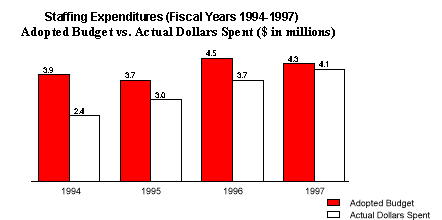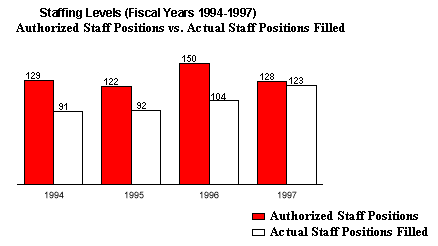

Last month, the Mayor announced his proposal to increase the budget of the Civilian Compliant Review Board (CCRB), the City agency charged with investigating and reviewing civilian complaints of police misconduct. The Mayor’s plan would increase the Board’s fiscal year 1998 budget by $1.5 million, from its adopted level of $5.3 million to $6.8 million, and is intended for the purpose of funding a total of 25 new positions. The newly funded positions would include the following: eight administrative investigators, eight supervisory investigators, two research analysts, two community liaisons, and several additional clerical workers. The sixteen investigator positions are to be filled with candidates having substantial law enforcement and investigative experience. The proposal also includes several initiatives aimed at enhancing CCRB’s ability to fulfill its mission, including, but not limited to (1) requiring the working out of a protocol between CCRB and NYPD so as to ensure prompt case status notification to CCRB complainants; and (2) requiring CCRB to adopt internal time frames for the investigation and review of CCRB complaints so as to ensure timely resolution/referral of such complaints. The accompanying two charts contrast budgeted to actual levels of staffing expenditures and personnel at CCRB during the period from fiscal 1994 to 1997.
Beyond the proposed $1.5 million addition to the budget of CCRB, the Mayor has allocated $15 million to support the efforts of his newly appointed 28-member police/community relations task force, which was formed after the alleged August beating of Abner Louima in Brooklyn’s 70th Police Precinct. Also, the City Council has passed legislation which proposes to spend $1 million annually to fund a new five-member police corruption review board, which would have the power to subpoena witnesses and city records. The new board would also give police officers an avenue outside of the police department through which to report misconduct, and is thereby intended to complement the efforts of CCRB.

